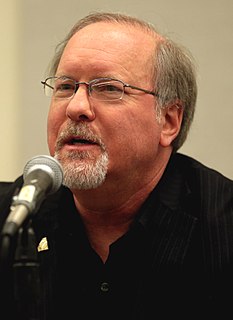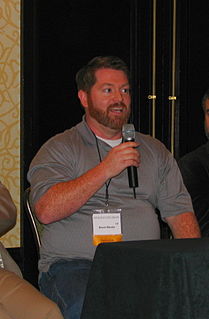A Quote by Kevin J. Anderson
I don't think the author should make the reader do that much work to remember who somebody is.
Related Quotes
Reading, I had learned, was as creative a process as writing, sometimes more so. When we read of the dying rays of the setting sun or the boom and swish of the incoming tide, we should reserve as much praise for ourselves as for the author. After all, the reader is doing all the work - the writer might have died long ago.
We must be forewarned that only rarely does a text easily lend itself to the reader's curiosity... the reading of a text is a transaction between the reader and the text, which mediates the encounter between the reader and writer. It is a composition between the reader and the writer in which the reader "rewrites" the text making a determined effort not to betray the author's spirit.





































